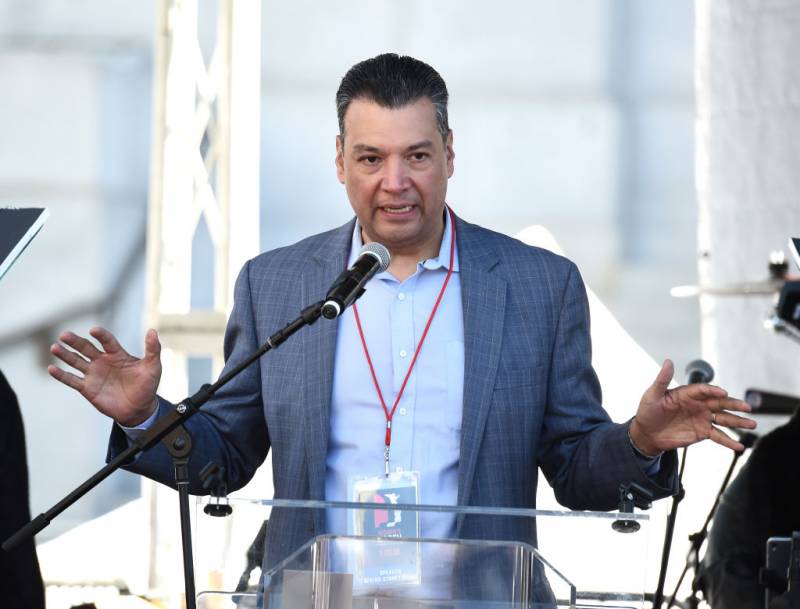California Secretary of State Alex Padilla has been tapped by Gov. Gavin Newsom to fill the final two years of Vice President-elect Kamala Harris’ U.S. Senate term, the governor’s office announced Tuesday.
Padilla, who will become California’s first Latino U.S. senator, has served six years as the state’s top elections official and more than a dozen years in state and local government.
Newsom offered Padilla the position in a video conference call recorded on Monday night, and released by the governor’s office on Tuesday morning. During the call, Padilla reflected on his working-class roots and the sacrifices his parents made.
“That’s why I try so hard to make sure our democracy is as inclusive in California as we’ve built,” Padilla said. “And it’s a hell of an important perspective to bring to Washington.”
Padilla was long the favorite to fill the Senate vacancy — created when then-Sen. Harris was elected vice president.
